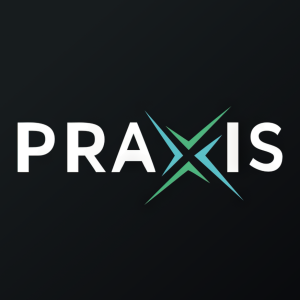Praxis Precision Medicines Reports Positive Results of PRAX-628 Study Evaluating Photo Paroxysmal Response (PPR) Achieving 100% Response in Treated Patients
In the 45 mg cohort,
In the 15 mg cohort,
Safety was consistent with prior dose escalation study and PK analysis confirmed therapeutic exposures
Praxis plans to initiate an efficacy study in focal onset epilepsy in the second half of 2024
BOSTON, March 26, 2024 (GLOBE NEWSWIRE) -- Praxis Precision Medicines, Inc. (NASDAQ: PRAX), a clinical-stage biopharmaceutical company translating genetic insights into the development of therapies for central nervous system (CNS) disorders characterized by neuronal excitation-inhibition imbalance, today provided an update on its Phase 2a proof of concept study evaluating PRAX-628 in epilepsy patients with PPR. PPR studies measure electroencephalogram (EEG) signatures after intermittent photic stimulation and are used as an indicator of anti-seizure efficacy.
“The strength and consistency of response across both study arms, combined with a continued positive tolerability and safety profile, build on our earlier conviction that PRAX-628 has the potential to be the first precision sodium channel modulator for focal epilepsy patients. With such a clear response, we have advanced our planning of the focal epilepsy efficacy study for PRAX-628, expected to begin in the second half of 2024. We extend our thanks to the patients who participated in this PPR study,” said Marcio Souza, president and chief executive officer of Praxis.
| Summary of Response | |||
| Cohort | Partial Response Rate | Complete Response Rate | Total Response |
| 15mg | |||
| 45mg | -- | ||
| Combined | |||
About the Phase 2a PPR Study
- Patient EEG signatures were assessed at defined measurement points over a 24-hour period after receiving placebo or PRAX-628, and results were compared to baseline.
- Patients must have demonstrated PPR during screening and baseline to be evaluable.
- A total of six patients were baselined in the 15 mg cohort, of whom five were evaluable. One patient in the 15 mg cohort did not present adequate PPR at baseline to be evaluated.
- Four patients were baselined in the 45 mg cohort, of whom three were evaluable. One patient in the 45 mg cohort was not evaluable due to lack of eligibility.
- Three patients from the 15mg cohort participated in the 45mg cohort after a washout period of >100 days.
- Three patients were on background anti-seizure medications (ASMs).
- Response Assessment
- Complete: Reduction to zero in the number of generalized PPR events at any assessment period vs. baseline.
- Partial: Reduction, other than to zero, in the number of generalized PPR events at any assessment period vs. baseline.
- Safety and PK samples were collected during the entire observation period.
PRAX-628 for Focal Epilepsy:
- The Phase 2a study builds on positive results from animal studies and the Phase 1 dose escalation study in healthy volunteers.
- PRAX-628 demonstrated unprecedented pre-clinical efficacy in the maximal electroshock seizure (MES) model.
- PRAX-628 was generally well-tolerated at all tested doses in the Phase 1 study.
- Pharmacokinetic data from the Phase 1 study demonstrated dose-dependent exposure supporting once-daily dosing without titration to achieve potentially therapeutically effective drug concentration levels.
- Further analysis of patients in the Phase 1 study using quantitative EEG data showed a pharmacodynamic effect at all dose levels and was significantly different from placebo.
Praxis will host a call on Tuesday, March 26 at 8:00 am ET to discuss the study results, and will be joined by Dr. Daniel Friedman, Professor of Neurology at NYU Grossman School of Medicine. To register for the call, please click here.
The live webcast and replay will be available through the Events & Presentations page of the Investors and Media section of the company’s website at www.praxismedicines.com.
About PRAX-628
PRAX-628 is a next-generation, functionally selective small molecule targeting the hyperexcitable state of sodium-channels in the brain that is currently being developed as a once daily, oral treatment for adult focal onset epilepsy. Preclinical data demonstrates PRAX-628 is differentiated from standard of care, with the potential to be best-in-class for focal epilepsy. In vitro, PRAX-628 has demonstrated superior selectivity for disease-state NaV channel hyperexcitability. In vivo studies of PRAX-628 have demonstrated unprecedented potency in the MES model, a highly predictive translational model for efficacy in focal epilepsy. Data from the PRAX-628-101 study demonstrated that PRAX-628 can be safely dosed in healthy subjects to greater than 15 times the predicted human equivalent of the rodent MES EC50.
About Praxis
Praxis Precision Medicines is a clinical-stage biopharmaceutical company translating insights from genetic epilepsies into the development of therapies for CNS disorders characterized by neuronal excitation-inhibition imbalance. Praxis is applying genetic insights to the discovery and development of therapies for rare and more prevalent neurological disorders through our proprietary small molecule platform, Cerebrum™, and antisense oligonucleotide (ASO) platform, Solidus™, using our understanding of shared biological targets and circuits in the brain. Praxis has established a diversified, multimodal CNS portfolio including multiple programs across movement disorders and epilepsy, with four clinical-stage product candidates. For more information, please visit www.praxismedicines.com and follow us on Facebook, LinkedIn and Twitter/X.
Forward-Looking Statements
This press release contains forward-looking statements within the meaning of The Private Securities Litigation Reform Act of 1995 and other federal securities laws, including express or implied statements regarding Praxis’ future expectations, plans and prospects, including, without limitation, statements regarding the anticipated timing of Praxis’ clinical trials, the development of Praxis’ product candidates and the potential therapeutic effects of Praxis’ product candidates, as well as other statements containing the words “anticipate,” “believe,” “continue,” “could,” “endeavor,” “estimate,” “expect,” “anticipate,” “intend,” “may,” “might,” “plan,” “potential,” “predict,” “project,” “seek,” “should,” “target,” “will” or “would” and similar expressions that constitute forward-looking statements under the Private Securities Litigation Reform Act of 1995.
The express or implied forward-looking statements included in this press release are only predictions and are subject to a number of risks, uncertainties and assumptions, including, without limitation: uncertainties inherent in clinical trials; the expected timing of clinical trials, data readouts and the results thereof, and submissions for regulatory approval or review by governmental authorities; regulatory approvals to conduct trials; and other risks concerning Praxis’ programs and operations as described in its Annual Report on Form 10-K for the year ended December 31, 2023 and other filings made with the Securities and Exchange Commission. Although Praxis’ forward-looking statements reflect the good faith judgment of its management, these statements are based only on information and factors currently known by Praxis. As a result, you are cautioned not to rely on these forward-looking statements. Any forward-looking statement made in this press release speaks only as of the date on which it is made. Praxis undertakes no obligation to publicly update or revise any forward-looking statement, whether as a result of new information, future developments or otherwise.








